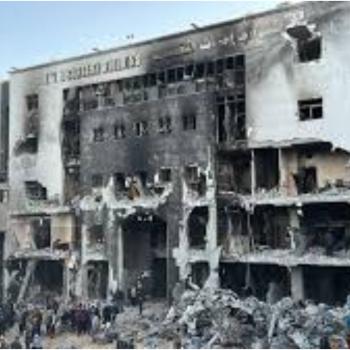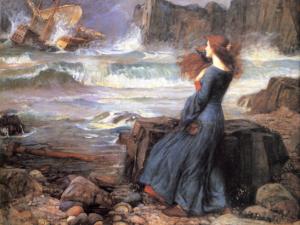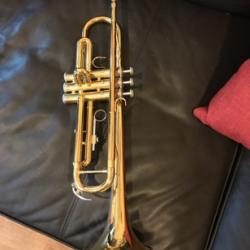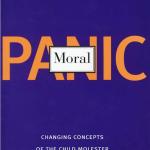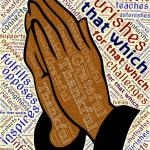Today the shield of the West failed and we are still paying the price. When Rome decayed and died in the West, losing all ability to save most of the great culture of Greece and Rome, there was one city that saved most of what was saved. Plato was reduced to one dialogue in the West, but this city saved all of Plato and studied him for centuries. Battered by barbarians, surrounded by paynim, the Queen of cities endured all, including being sacked by her natural allies.
 That city was Constantinople and the last Christian service took place in her great church of the Holy Wisdom today in 1453. When I am told politics does not matter, that Christians must retreat, and that our job is not to build cities in this age, I am reminded of the cost of losing Constantinople. Good people often tell us to retreat, to take the monastic options, but without Constantinople that option becomes nearly impossible.
That city was Constantinople and the last Christian service took place in her great church of the Holy Wisdom today in 1453. When I am told politics does not matter, that Christians must retreat, and that our job is not to build cities in this age, I am reminded of the cost of losing Constantinople. Good people often tell us to retreat, to take the monastic options, but without Constantinople that option becomes nearly impossible.
Christians live in Christ’s Kingdom now and so create art, write books, and build beautiful structures. We create hospitals to care for the sick, investigate the natural world, and defend the weak and the powerless. We will never do these things perfectly, but do them we must. No “political order” or exercise of power will be precisely good this side of Paradise, but good must be done. Another name for “politics” is “an organized community.”
If you got the politics out of the church, there would be no church. If you can imagine a community without rules (laws!) and limits, then you are not imagining a community for people. You cannot bewail the lack of art, beautiful buildings, first-rate education, and other benefits of civilization and then refuse to do the dirty work of building the institutions that make those things possible.
Some Christians act as if non-Christians are called to run the structures and we are called to be benefit from them: community parasites. We are told that we are called to serve and so we are, but the servant is in a position of power to the one he serves. This is unavoidable. If I do as mundane a task as making you coffee, you have placed your safety in my hands and delegated a “civilization creating” task to me. This very task depends on someone growing the coffee, getting it to you, making the coffee maker, getting that to you, and all the complex interchanges that come before I can make you a cup of Joe.
I am part of a vast cultural and political system giving you the cup of coffee you requested. The lazy Christian pretends he has no responsibility for those systems, for the “city of man,” that makes even the simplest good thing possible. The real Christian builds Constantinople when he can and makes the best of it. What choice do we have?
We can serve and serve, for three hundred years we serve, but suddenly the errors of our foes are plain to all and they turn to us to lead. A Constantine takes on the thankless task, enters the arena of power, makes mistakes, and suffers the carping of lesser men for centuries as they live in the protection of the culture and City he created.
His heirs have the convenience of using the texts he saved to attack the mistakes he made. They are men who never make the mistakes of power by embracing the cultural laziness of creating nothing, doing nothing, risking nothing, while carving out little sinecures in the cities bolder men and women created.

Christians build cities. Even flawed men, half caught by demon rum, like Sam Houston. They defend liberty, read the Bible, and create a city where lesser people can flourish. Christians are always building cities and the barbarians or the degenerate descendants always threaten the health of those cities. The founders are imperfect and the foundations always flawed, but the city remains.
If you don’t like the City, you are no Christian, because we have left the Garden never to return and our future is in the City.
When the last Constantine stepped down from his throne, put off his robes of state, and died with his men for the City, he showed us that defeat can be glorious. He died better than he ruled, but his noble death inspired and preserved the culture of the Commonwealth that inherited his City’s civilization. When the last priest began the last service in Holy Wisdom, never to finish, he helped a whole region enter into a worship of God that has never ended. He began a liturgy we are still singing in the East and the West of the world.
Christians are still dying to the paynim in the old Eastern Roman Empire. Ancient churches are being pillaged today. The West is of no help caught in a libertine slumber. Still they carry the light of truth forward. Still they work where they can with more caring rulers of other faiths. Still they create art, build churches, and write books. Still they serve in government where they are allowed.
Still they make mistakes. And yet what else can they do?
They are the heirs of Constantinople and even in their decay five hundred years later, they refuse to leave, love their homes, and honor the Fathers and Mothers of the Faith who have gone before them. No time here for celebrity culture where ghost writers or instant experts pontificate on the First World problem of the moment. No social media strategy will preserve what is left of the City.
The City is often deeply flawed. It is easy to list the errors of the Christian Empire and, thank God, the Empire is not returning. We have learned much since that time in 1453, but we have learned the lessons in part because the City saved the texts, the education, and the vocabulary that allow us to reject some of what that City did. We stand on the intellectual foundations of Constantinople behind the long intellectual walls she defended, constructed, and preserved. That City of words has never fallen and can never fall as long as one modern Christian endures.
If we endure, as Christians have always endured, perhaps hundreds of years from now, the infidels, the paynim, the confused will turn to the churches we have preserved, the iconography we have created, the books we have saved and written, and ask to live in our little cities. These will swell and face new problems, but always the City will serve as a model. We will avoid her errors, but still live within her walls.
Constantinople fell only in 1453, but she still stands proudly imperial, purged of all her faults, her long walls still standing four square as one of the best icons in our imaginations of the City to come . . . the City of God where Jesus is Emperor and no steward or viceroy is needed. There justice will be done, mercy given, and the flow of creativity in that age will dwarf all that has come before now.
I build today in the hope of that age to come.






